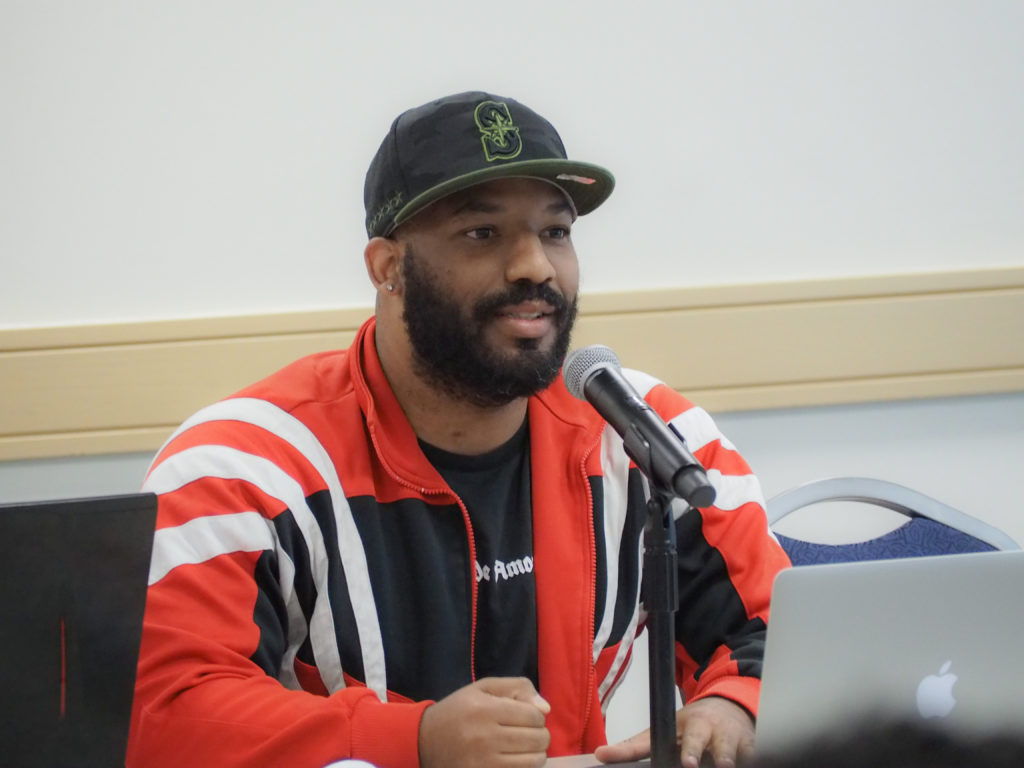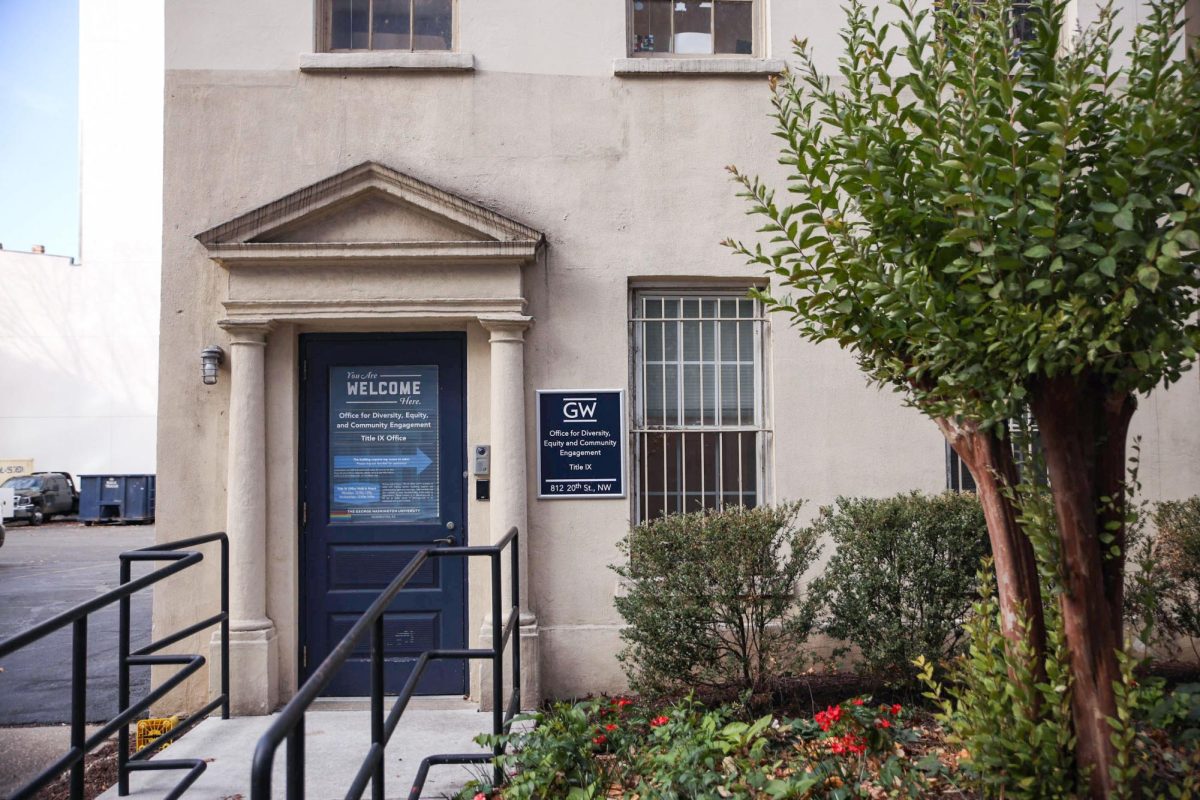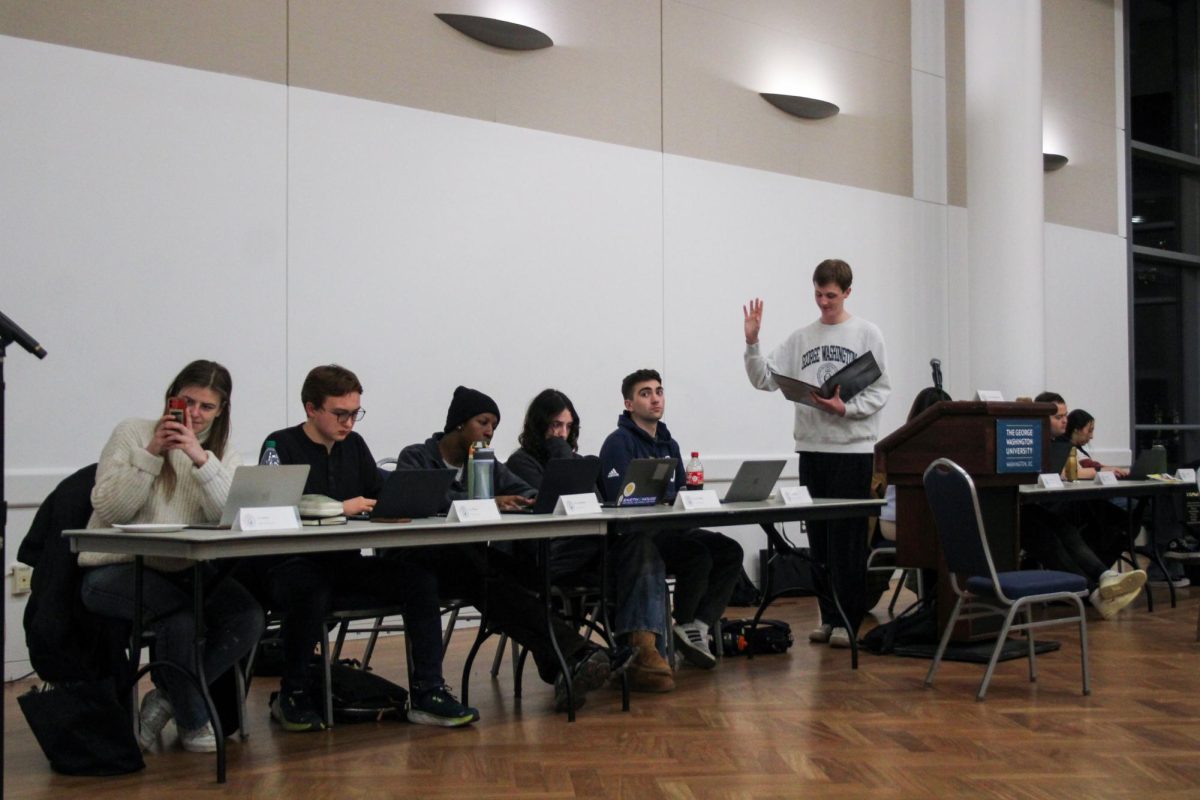Student Association leaders are planning to revise the SA constitution this spring to address vague or conflicting language.
The SA senate unanimously approved a bill last month to form a 13-member committee – which includes three executive members and a non-voting, ex-officio member – that will spend next semester reviewing and proposing changes to the SA’s constitution. Committee members said they want to address inconsistencies in the body’s governing process and adjust language, like pronoun usage, in the document to better represent all students.
SA Sen. AJ Link, Law-G and a committee member who proposed the legislation to create the group, said he spent the fall semester devising how the committee will rewrite the constitution. He and other SA leaders took steps to overhaul the SA’s bylaws last academic year like clarifying language about SA rules and legislation.
Link said he wants the committee to update the document to include more “inclusive” language, like various pronouns, to ensure transgender, non-binary and gender non-conforming students are equally represented in governing documents.
“Being inclusive is a huge part of being a student representative, making sure that you’re not excluding people within your community,” he said. “Having more inclusive language makes the SA more inviting, more friendly, and then at the same time, when you’re clearing up inconsistencies or confusion, it allows for the SA to operate more smoothly.”
The document was last amended after SA elections in March when students voted in favor of adding a nondiscrimination policy to the constitution.
SA Sen. Catherine Morris, CCAS-U and a committee member, said the group constantly updates a shared document with ideas and suggestions members have about changes they want to see in the constitution. She said the document will allow the committee to “structure” their edit ideas in preparation for rewriting the full constitution.
Morris said several committee members have proposed implementing a constitutional review, which would require the senate to read through and, if necessary, revise the constitution every few years to ensure that the constitution is up to date.
She said the committee plans to hold a constitutional convention in February to modify the constitution. Morris added that committee members will present the amended document to the full senate and hope senators will approve a referendum based on the committee’s suggested changes for the spring SA elections.
The SA Senate is required to approve any referenda before presenting a vote to the student body during SA elections in the spring. The student body must vote on any changes to the SA’s constitution, according to the body’s governing document.
“Ideally all of the edits that we get and all of the drafts that we have, we’ll be able to discuss them in the convention have it all go through unanimously,” Morris said.
SA Sen. Quentin McHoes, ESIA-U and a committee member, said he wants the constitution to offer “very specific, inclusive” verbiage because the document does not currently include inclusive language. He said the current document’s language excludes communities like students of color, women and students in the LGBTQ communities.
“There is a lot of necessity to work on changing those aspects so that the Student Association’s governing and guiding documents are the most reflective of our student body,” McHoes said.
SA Sen. Josh Kim – CPS-G, senate pro tempore and a committee member – said establishing a committee to propose changes to the SA’s constitution is “crucial” to fixing hindrances in the current document, like in places that do not provide sufficient details for SA rules or procedures.
He said he hopes committee members will focus on how the proposed changes will benefit the student body, not just the SA.
“It’s important to approach this with finesse and really make sure we’re carefully addressing flaws with the current SA constitution,” he said in an email. “I am confident that the committee will succeed in doing so.”
Kim said he wants the committee to focus on clarifying language in the document because some areas of the current document include a “great amount of unnecessary detail,” while other parts lack nuance. He said the SA is bound to run into procedural issues when the constitution does not clarify what processes the body must follow.
“Any Student Association, whether its this one or future SAs, can’t be as productive as they need to be when a lack of clarity on something in the bylaws is preventing them from accomplishing a task or dealing with an issue,” he said.
Lizzie Mintz contributed reporting.








